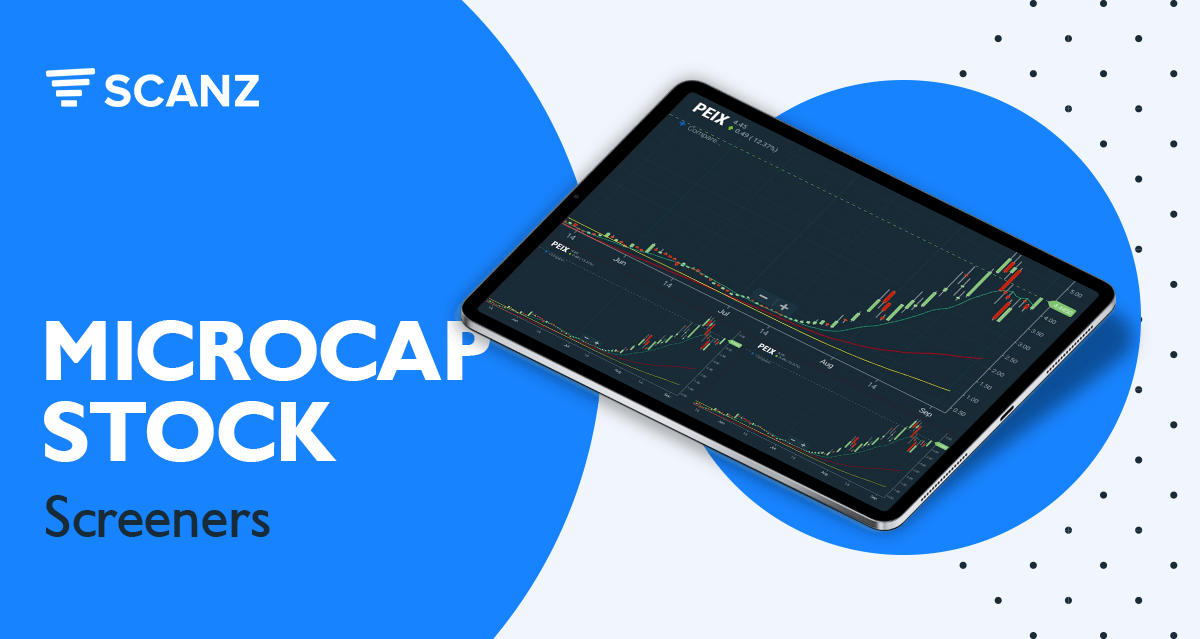

This ensures that you’ll be able to execute your positions when you think it’s best - not only where there are buyers on the market.

If you’re a day trader or you’re looking to take advantage of quick price movements, look for a micro-cap stock with a higher daily trading volume. High daily average volume: A stock’s average daily volume is the average number of shares that change hands every day.You may want to avoid micro-cap stocks that trade only on OTC exchanges because these can be very risky investments. This makes it significantly more difficult to execute acts of fraud or artificial price manipulation. Trading on a major exchange: In order to trade on the New York Stock Exchange or the NASDAQ, a company must meet basic financial documentation requirements.Though many micro-cap stocks have debt and negative earnings per share (EPS) values, a strong record of year-over-year growth can mean that the company is steadily approaching profitability. Continued growth: A big advantage micro-cap stocks have over large cap stocks is that they can grow more effectively.To protect your investment, look for these 3 characteristics before you buy: Micro-cap stocks are associated with more risk and a higher rate of failure than larger companies. Enforces Pattern Day Trading restrictions (accounts need to maintain a daily equity balance of at least $25k).If you don’t already have a brokerage account, consider 1 of our favorites below.

#Exciting micro cap stocks professional
Instead, you must work through a broker, a financial professional or firm authorized to buy and sell securities on your behalf. As an everyday investor, you can’t buy or sell any stock directly. Best Online Brokers for Micro Cap Stocksīeginning your stock trading journey starts with opening a brokerage account. Because there are fewer buyers for micro-cap stocks, price manipulation and fraud are not uncommon. Micro-cap companies may also fail or go bankrupt without notice, which can lead to significant capital losses. It can be more difficult to find information on micro-cap stocks compared to large-cap and mega-cap stocks because fewer experts provide analysis reports. Investing in micro-cap stocks is significantly riskier than investing in larger companies.

Day traders and scalpers often turn to micro-cap stocks when they want to capitalize on drastic daily price movements. More volatility: Though this might not be a very appealing feature if you’re a long-term investor, micro-cap stocks also tend to show more volatility than larger companies.Micro-cap stocks can grow more effectively, which leads to larger returns on your investments. Higher growth potential: The larger a company’s market capitalization, the more difficult it is to show significant year-after-year growth.If you have a limited amount of capital to invest, putting your money into strong micro-cap corporations can give you more potential for profit. More potential for profit: Micro-cap stocks can be hot stocks under $5.There are a number of benefits that come with micro-cap stocks, including: Micro-cap stocks are usually issued by smaller companies that aren’t household names. You can calculate a company’s total market capitalization by multiplying its current share price by the number of shares outstanding. Features to Look for in Micro Cap StocksĪ micro-cap stock is a stock with a market capitalization that ranges between $300 million and $2 billion.Best Online Brokers for Micro Cap Stocks.


 0 kommentar(er)
0 kommentar(er)
